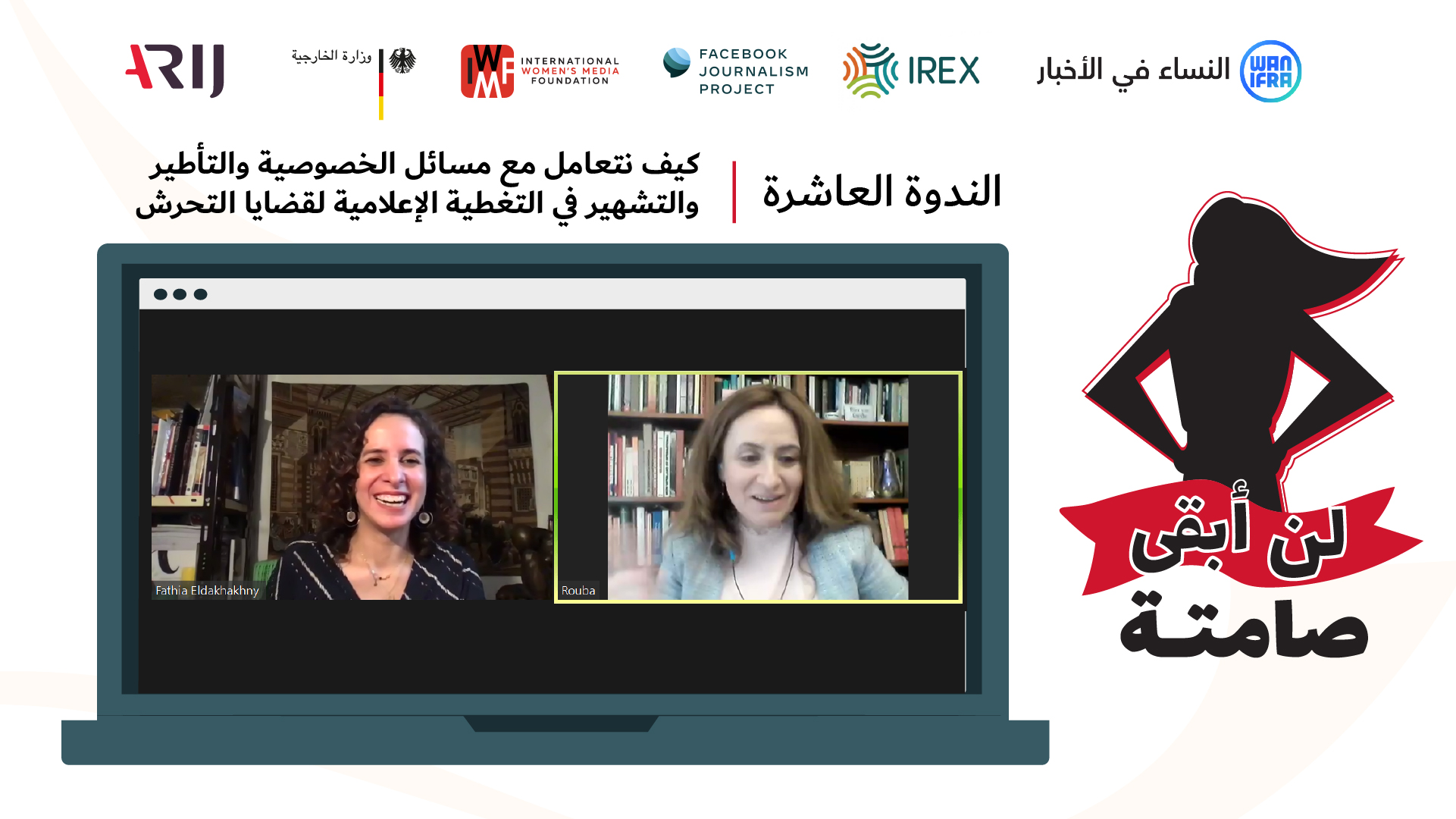Amman- 17 May 2021
The 10th webinar under the “I Will Not Stay Silent” project discussed the ethics of media reporting of sexual violence issues, and how to deal with framing, privacy, and libel. This comes within the framework of the project’s main aim to create a safe, pluralistic media environment that is free of discrimination based on sex, gender, color, race, religion, or ideology.
“I Will Not Stay Silent” is a year-long project launched by ARIJ (Arab Reporters for Investigative Journalism) in partnership with the Facebook Journalism Project, Women in News / WAN-IFRA, the International Women’s Media Foundation (IWMF), SAFE, IREX and supported by the German Federal Foreign Office.
The webinar, held on 17 May 2021, was presented by Egyptian journalist and lecturer at Alexandria University Fathia Eldakhakhny, and moderated by Dr. Rouba El Helou, political communication and gender lecturer at the Faculty of Law and Political Science at Notre Dame University-Louaize, Lebanon.
The session addressed the role of media in confronting sexual harassment, and whether it is capable of fulfilling its role in the Arab region, which most of the participants agreed it is not. Rather, sometimes, the media contribute to perpetuating harassment in society.
Eldakhakhny pointed out to the necessity of being familiar with the regions’ law while covering sexual harassment, its definition and acts that may be considered harassment, as well as the due penalties for such acts. She added that evidence on harassment is a burden that falls on the survivor’s shoulders, which is one of the biggest challenges journalists face when reporting on such crimes, because of the fear of defamation, especially in cases where conviction has not been approached yet.
The Egyptian journalist and writer also advised on using ethical codes and guidelines provided by press institutions or civil society organizations to report on sexual violence crimes, despite their scarcity in the Arab World. Rather, most of them address criminal reporting in general.
Regarding the language used in reporting such crimes, Eldakhakhny stressed the necessity to use an appropriate language which is free of stereotyping, judgment, and expressions that may include victim blaming or hold her responsible for the assault. In addition, unnecessary details about the incident that aim to sensationalize and attract readers should be avoided, so as not to harm the case.
Responding to a question raised by one of the participants regarding the comparison between the terms, “survivor” and “victim,” and their use in reporting, the former director of Al-Masry Al-Youm website said that both are permissible and each has its advocates, but it is preferable to ask the person who has been subjected to the assault, which term they prefer.
She emphasized that when reporting on harassment, journalists should refer to figures and statistics related to the topic, relevant laws, the penalties associated with them, and speak to experts about the extent of the phenomenon.
Eldakhakhny also shed a light on how to deal with official data which may not provide complete information about the issue, indicating that it is not recommended to fully rely on data when reporting on harassment. It is also necessary to avoid publishing the victims’ names or some details indicating their identity that may be included in the official statements.
She noted that Information that violates the privacy of the survivor posted on social media, such as photos and videos, is not a justification for using it in media reporting on the issue.In the 11th webinar on 24 May 2021, journalist and digital media expert Khaled ElBaramawy will discuss challenges and opportunities for developing policy frameworks within organizations. Registration for the webinar is available through the link.








